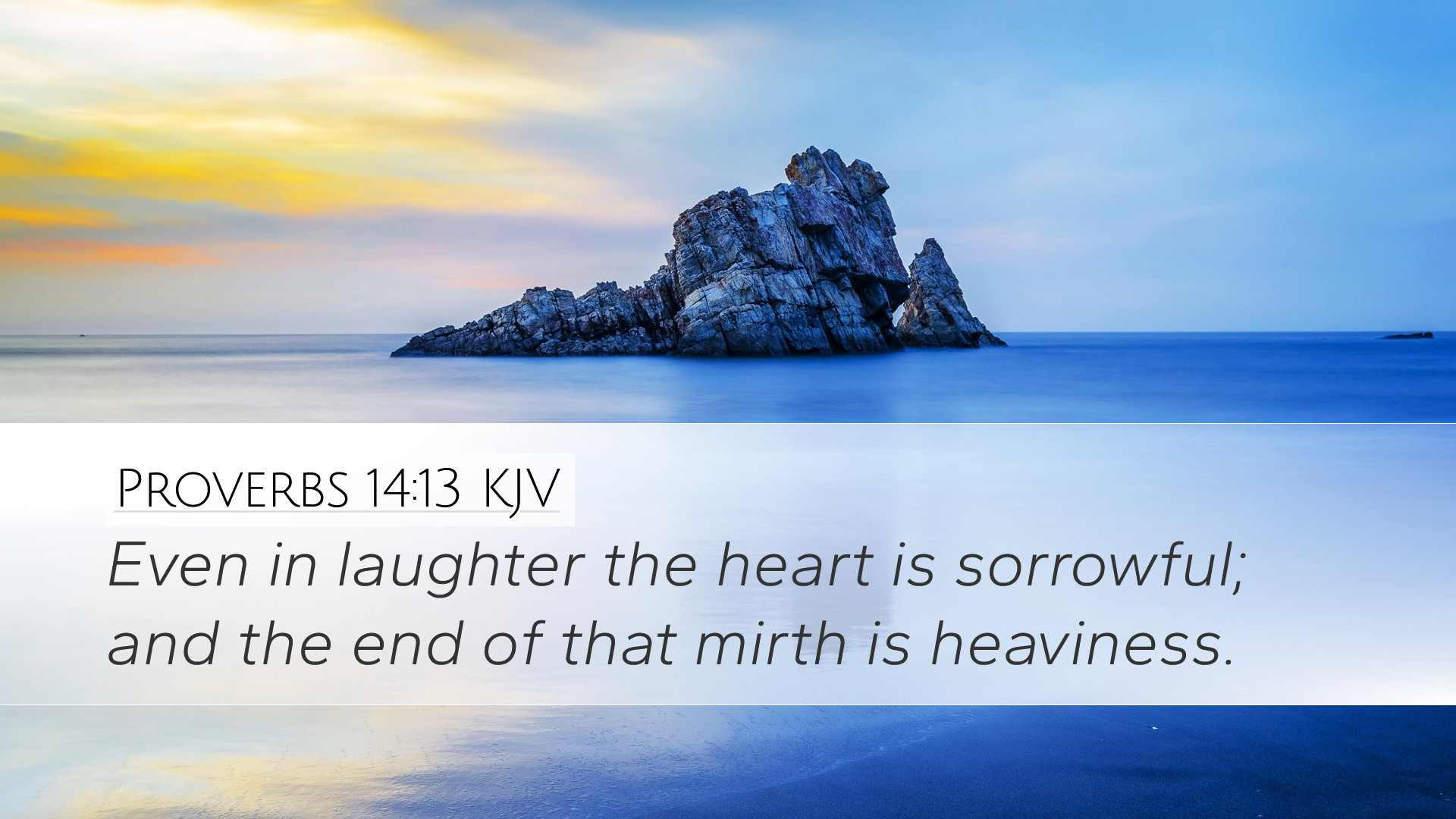Commentary on Proverbs 14:13
Proverbs 14:13 states, "Even in laughter the heart is sorrowful; and the end of that mirth is heaviness." This verse provides profound insight into the human condition, encapsulating the duality of joy and sorrow that often coexist in our lives.
Literary Context
The Book of Proverbs is part of the Wisdom Literature in the Bible, characterized by practical teachings and observations about life. This specific verse examines a key theme: the contrast between outward appearances and inner realities. It serves as a reminder that laughter may not always stem from true joy; rather, it can often mask deeper emotional pain.
Insights from Public Domain Commentaries
Matthew Henry's Commentary
Matthew Henry emphasizes the transient nature of laughter in the face of underlying sorrow. He notes that while laughter can be a manifestation of joy, it does not guarantee the absence of sorrow. He writes, "The heart may be grieved even when the face is cheerful." Henry elaborates that this duality reflects the human experience—where one may appear happy externally but grapple with internal grief.
Albert Barnes' Notes on the Bible
Albert Barnes provides a theological perspective on this verse, suggesting that laughter can serve as an escape from reality. He states, "Often those who laugh the loudest are hiding their deepest pains." This insight reminds the reader of the importance of discernment; one must look beyond the surface to understand the true emotional state of others. Barnes also connects this verse to the biblical idea of joy in the Lord, which transcends mere happiness and addresses the heart's deeper needs.
Adam Clarke’s Commentary
Adam Clarke approaches the verse with a more pastoral tone, discussing the perils of finding solace in amusement. He warns that "superficial happiness can lead to spiritual neglect," where individuals might avoid addressing their underlying issues for the sake of momentary pleasure. Clarke’s commentary touches upon the Christian principle that genuine joy is rooted in a relationship with God rather than fleeting pleasures or societal amusements.
Theological Reflections
This verse provides a rich source for theological reflection, especially regarding the nature of human emotions. It echoes the sentiments found in Ecclesiastes 3:4, which states there is a time to weep and a time to laugh. The coexistence of joy and sorrow allows pastors and theologians to craft pastoral care strategies that recognize the complexity of human emotion.
Practical Application
For pastors and theological students, Proverbs 14:13 is a reminder of the need for authenticity in ministry. When approaching congregants, it is vital to create spaces where individuals can express both their joys and their sorrows without judgement. The church should be a haven where the complexities of life are acknowledged and addressed with grace.
- Understand Context: Recognize when someone is using laughter to mask their pain.
- Encourage Vulnerability: Foster a culture where it is safe to share struggles.
- Preach Wholesome Joy: Emphasize the joy that comes from Christ, which sustains through life's trials.
Conclusion
In conclusion, Proverbs 14:13 serves as both a warning and an insight into the human condition. It challenges readers to look beneath the surface of joy and humor to find the truth of one’s emotional and spiritual state. By acknowledging this duality, both pastors and scholars can deepen their understanding of human psychology and enhance their ministry strategies, leading to more fulfilling lives in Christ, characterized by genuine joy amid sorrow.


